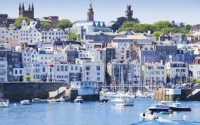Welfare Cuts and Tax Havens - The State We Are In
Monday 08 April, 2019 Written by Simon Collyer/Daily Record
The benefit freeze is continuing to bite. Goods and services costing £10.00 in 2016 cost in 2018 £10.70.
The benefits freeze means claimants’ income stays the same while the cost of living goes up.
Between 2016 and 2020 the freeze will have affected more than 27million people and pushed 400,000 into poverty.
The claimed savings of £190million a year are just one per cent of the expected savings from welfare reforms since 2010 and 0.1 per cent of the total welfare bill according to the Scottish Record.
According to the Government, benefits are being cut with the aim of driving people into work. But four in five people bearing this cut aren’t expected to work.
The money is available to give people a small rise in benefits, even if it comes from the £15billion contingency the Chancellor has put aside to deal with a disastrous no-deal Brexit.
The country’s coffers would be a lot better off if international corporations paid their fair share of tax instead of skipping jurisdictions as they see fit. Google make £9.7billion in the UK last year and only pay £67million in tax? Google diverts sales and receipts from the UK to Ireland, where the exposure to tax is minimal.
Research by the Tax Justice Network shows that if all the tax due was paid in the UK, Google would have to shell out £1.5billion in extra corporation tax, on top of the £67million it does pay.
Fearing a defeat that would force tax-haven islands to comply with financial transparency rules, the Government recently has dramatically delayed the Commons debate.
The islands had threatened a constitutional crisis if they were forced by Westminster to introduce public registers revealing just who owns companies there.
These islands have the protection of the Queen, the Royal Navy, and bear passports of whatever colour the UK finally settles on. But they are self-governing and not normally bound by legislation passed by Westminster.
The Crown dependencies will continue with their cloaked, tax haven status, hiding the identity of the super-rich.
In fact, the British Overseas Territories like Caymen and BVI are being forced to publish ownership registers – but that too has been watered down and delayed until 2023.
The reason the government pulled the legislation to avoid more transparency is more likely because it is beholden to its own party funders.
The Tories have raised more than £5.5million in the last decade from donors living in tax havens and their UK companies. People who are resident abroad for tax purposes can still register as overseas voters and so get around electoral laws that ban donations from abroad.
A Times investigation has revealed a third of British billionaires have moved to tax havens over the past decade. So, no surprise that they would want to preserve both their status, their secrecy and their loot.
Some well-timed donations to the party of government appears to have been money well spent.
Why should we be bothered by what rich people do with their money, they earned it, after all?
The trouble is that all the tax they do not pay has to be met by the rest of us. According to Oxfam, the British Crown dependencies are at the heart of a global tax avoidance network that costs 170billion US dollars a year for poorer countries.
The people who should be at the apex of the tax system, whose British businesses reap all the benefits of the open and well-regulated UK economy, continue to legally minimise their exposure to tax.
The rich are benefitting but the poor are getting poorer and this is leading to mental health issues, depression and suicide. At least those on benefits can see what is going on. With a future election looming that could be crucial.
ABC Comment, have your say below:

Leave a comment
Make sure you enter all the required information, indicated by an asterisk (*). HTML code is not allowed.
Join
FREE
Here










